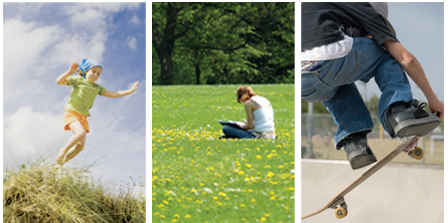 Today's discussions at 2gether08 brought me back again to a realisation that youth work, and wider informal education, is not on very many people’s radar.
Today's discussions at 2gether08 brought me back again to a realisation that youth work, and wider informal education, is not on very many people’s radar.
When we talk young people and education, conversations very quickly turn into conversations about schools and colleges – capturing only a small part of young peoples education. Only 9 minutes, in fact, of every hour in young people’s waking day is spent in school (and that’s just for the young people who are actually in school…).
Not all of the remaining 51 minutes of each hour will be spent in informal education, and for many young people, access to supported informal education is really limited (statutory youth services are only resourced to support on average 30% of their local 13 – 19 year old populations) – but, supported and unsupported informal education really mustn’t be forgotten and is something that, in a web 2.0 social media world, we should be paying a lot more attention to.
In formal education we generally start with a list of things we want young people to learn, and most often we deliver that on the basis of our timescales and agendas. We want young people to learn things about maths – so we make them take maths classes in school. We want young people to be safe on the internet – so we design internet safety sessions. We want young people to make the most of the web – so we tell them how to use particular bits of software. And, in the latter two cases at least, it doesn’t really have a very strong impact on young people’s behavior.
In informal education – and in youth work – we start not from where we want young people to be, but from where young people are. Instead of deciding that young people must know how to be safe online – supportive adults (or supported peer educators) who have built a professional relationship with young people through informal activities or group work sessions look out for issues that young people are facing, and design and deliver appropriate interventions at the right time. They support young people to explore the issues they are facing in the here and now, and they explore not just ‘the issue’ in isolation – but they explore the issue with young people as complex individuals and as part of peer groups.
For example, if a youth worker becomes aware of young people engaging in risky behavior online (publishing all their personal details on a social network profile page for example) they might talk to that young person – and explore setting up a group discussion with that individual and some of their peer to explore online social networking. They may go on explore the reasons people publish personal details online, and use the opportunities to explore issues such as image, media literacy or self-esteem.
Youth work is about starting where young people are: with the issues affecting young people – and is about going beyond that – support young people to explore, reflect upon and learn from the issues. It’s also about building young people’s resiliency, resourcefulness and relationships – rather than about filling up young people with knowledge and facts. And that can have a far stronger impact on behaviors than any formal education.
To my knowledge – there aren’t many online resources that offer a full picture of what Youth Work is. And given it’s localised, community driven and diverse range of approaches and contexts (from school-based youth workers and workers based in youth clubs, through to workers in targeted projects and detached youth workers on the streets) you can rarely get a full picture from asking a single youth worker.
However – it’s well worth finding a few youth workers to talk to. To explore what it is they do. And next time you think education… make sure you don’t just think schools…
For Further Reading:
Two pages on Youth Work – A brief resource I prepared for my session at 2gether08 as a hand out.
Youth Work: A Manifesto For Our Times – Bernard Davies provides one of the best recent overviews of Youth Work in this 2005 paper which has become a staple of all Youth Work reading lists.
Good Youth Work: What Youth Workers Do, Why and How – sadly not yet available online, this brief narrative pamphlet offers an insight into what it is that youth workers do which makes a difference to young people.
Infed – an archive of just about everything informal education and youth work you could hope to read – including a comprehensive history of the field.
Positive Youth Development Literature Review – Positive Youth Development theory is peripheral at present to most UK Youth Work (Youth Work in the UK has it’s roots in post World War II sociology and social theory, whereas positive youth development draws on post 1980 US ecological neuroscience) – but, after conducting a literature review on the impact of Positive Youth Development models last year I’m convinced it has a lot to offer policy thinking about the sorts of capacity building informal education interventions that can really make a difference to young people’s lives.
Attachment: What is Youth Work.pdf
 Wow. If you've ever wondered why government should release it's data for communities to mash-up and turn into useful things, then take a look at this list. An array of many quite fantastic ideas.
Wow. If you've ever wondered why government should release it's data for communities to mash-up and turn into useful things, then take a look at this list. An array of many quite fantastic ideas.  Today's discussions at
Today's discussions at